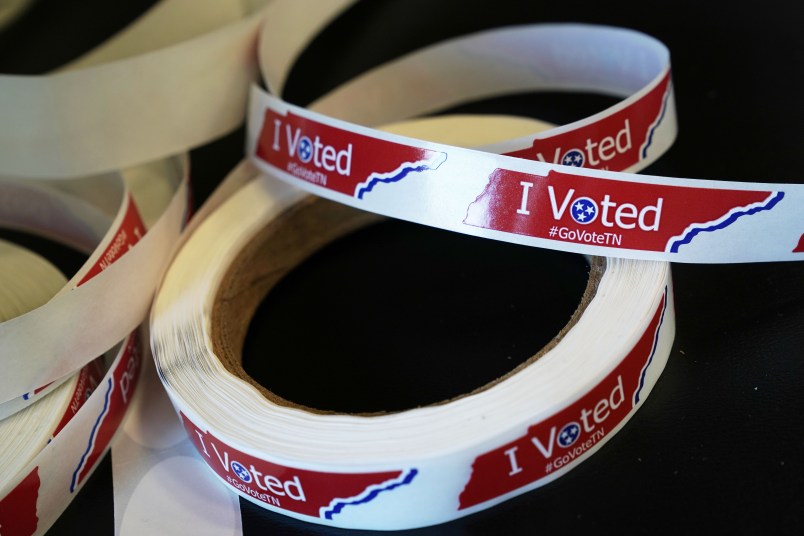You are using an out of date browser. It may not display this or other websites correctly.
You should upgrade or use an alternative browser.
You should upgrade or use an alternative browser.
The Official World Politics Thread
- Thread starter Herbal Kint
- Start date
- Status
- Not open for further replies.
More options
Who Replied?StringerBell
OG
StringerBell
OG

Air Force crew made an odd stop on a routine trip: Trump’s Scottish resort
Now the layover is part of a broader House inquiry into military spending at and around the Trump property.
 www.politico.com
www.politico.com
Playmaker88
My style is impetuous.. My defense is impregnable
How many impeachable offenses is he going for these last 7 days God damn
Playmaker88
My style is impetuous.. My defense is impregnable
We are effectively a 3rd world country with first world problems
Elzo69Renaissance
Niggas online ratting then calling it content
John went to Wharton the same biz school Trump was getting C s atIm suprised he didnt call john legend stupid, since thats one of his go to's for poc
Elzo69Renaissance
Niggas online ratting then calling it content
StringerBell
OG

6 Craziest Moments from Atlantic Story on Trump Family Drama
There's an epic new piece in The Atlantic on the making of the Trump dynasty -- from Friedrich Trump, brothel baron, to Fred Trump, New York outer-borough real estate developer, to Donald Trump, president, to two children vying to be the next heir: Don Jr. and Ivanka. The deeply reported cover...
BRIAN B.
Shittypoobutt
Him losing could spark a Civil War in this country... think about that for a moment. Dude has been fact checked 11k and his supporters still believe in him... 11 THOUSANDS LIES... give me a woman like that and life would be epic
was tellin my brother this the other wk
win or lose, he'll start a war
lose (civil war) or win (ww3)
StringerBell
OG

From Mueller Cooperator To Deep-State Conspiracy Monger: Flynn’s Big Day In Court
On Tuesday, the public may get to see how former National Security...
talkingpointsmemo.com
StringerBell
OG

Air Force Reviewing Military Personnel Stay At Trump Resort In Scotland
The Air Force will conduct a review of how it chooses where...
talkingpointsmemo.com
Air Force Reviewing Military Personnel Stay At Trump Resort In Scotland
The Air Force will conduct a review of how it chooses where military personnel stay overnight following reports that crews chose to stay at the President’s luxury resort in Scotland at least twice in the past year, Politico reported.
It was reported last week that an Air Force crew opted to stay at Trump’s Turnberry resort in Scotland earlier this year while refueling nearby. Politico also reported Sunday evening that in September 2018, a unit of the Marine Air National Guard bunked up at the same golf club. While Air Force Brig. Gen. Ed Thomas told Politico that the crew “adhered to all guidance and procedures,” it intends to review its guidance for overnight stays.
In a separate interview on Sunday, the deputy commander of the Air Mobility Command told Politico that the review is designed to make sure personnel follow rules, but also to determine whether it’s appropriate to stay at Trump’s properties.
“What the chief is getting at is just because you can, we should also be asking ourselves the question about should,” Lt. Gen. Jon Thomas told Politico. “And the question there is, as our crews are following all guidance and directives we also have to be sensitive to the possible perceptions that might be created on where they may stay.”
The review comes as government officials’ stays at the President private resorts comes under increased scrutiny. Just last week Vice President Mike Pence was in hot water over his decision to stay at Trump’s private resort in Ireland, which was more than 100 miles away from his planned meetings in Dublin.
StringerBell
OG

Judge Deeply Skeptical Of GOP-Backed TN Law Targeting Voter Registration Drives
A federal judge signaled Monday that she is extremely skeptical of Tennessee’s...
talkingpointsmemo.com
Judge Deeply Skeptical Of GOP-Backed TN Law Targeting Voter Registration Drives
A federal judge signaled Monday that she is extremely skeptical of Tennessee’s new law imposing onerous requirements and stiff penalties on voter registration drives.
U.S. District Judge Aleta Trauger’s harsh words for the law came in an opinion explaining why she was refusing to dismiss a lawsuit challenging the law.
“If Tennessee is concerned that voter registration drives are being done incompetently, it can engage in public education efforts without relying on a complex and punitive regulatory scheme,” she said.
Her skepticism suggests Tennessee has a rough road ahead of it when it comes to defending the law, which was passed by the state’s GOP’s legislature and signed by Gov. Bill Lee (R) earlier this year.
Republicans have claimed the new requirements and penalties were necessary after a black voter group turned in thousands of registration forms — some of them duplicates and others missing required information — before the midterm elections, allegedly overburdening election officials.
“No one in this case disputes that it is crucial to the functioning of our system of government that county election commissions have resources proportionate to the scale and importance of their responsibilities,” the judge said. “But restricting voter registration drives in order to try to preserve election commission resources is like poisoning the soil in order to have an easier harvest. There is no point in taking a step to preserve resources if, by doing so, one thoroughly compromises the reason that the resources were important in the first place.”
Under the new law, groups face thousands of dollars of fines and even prison time if they turn in a certain number of incomplete forms. The law also imposed new training requirements on the groups and mandated they include a disclaimer in their registration communications.
As the Washington Post reported earlier this year, there were indeed problems with the registration forms turned in during the midterms. However, the state’s GOP legislature did not do a formal investigation into what went wrong before rushing to pass the new penalties. Their failure to identify what problems the new restrictions were solving was a subtext of Trauger’s opinion Monday.
“[T]here is, on the current record, no basis for requiring that registration workers and volunteers receive mandatory government training prior to assisting with voter registration,” Trauger wrote. “At least at this stage, there is no reason to believe that private training has been inadequate or that voter registration organizations would refuse to use training resources made available to them unless forced.”
The state in asking her to dismiss the lawsuit had argued she lacked jurisdiction to hear the case and that the challengers failed to state a claim. In her decision Monday, the judge refused to dismiss any of the challengers claims.
Trauger said that the way the penalties for incomplete forms are structured “falls hardest not on bad actors but on organizations with the most ambitious and inclusive voter registration efforts.”
The law’s justification for the disclaimer is “even more difficult to discern”she said
“Voter registration drives are a perfectly legitimate component of the voter registration system, under Tennessee law and under the Constitution,” she said “A disclaimer that could be read to suggest otherwise would be a substantial burden without a corresponding benefit.”
StringerBell
OG

Trump Excluded Dayton Mayor From Ceremony Honoring First Responders At Shooting
President Donald Trump didn’t invite Dayton Mayor Nan Whaley (D) to a...
talkingpointsmemo.com
Trump Excluded Dayton Mayor From Ceremony Honoring First Responders At Shooting
President Donald Trump didn’t invite Dayton Mayor Nan Whaley (D) to a White House ceremony on Monday honoring the police officers who responded to the deadly shooting in the Ohio city last month.
Trump awarded the Medal of Valor to six law enforcement officials in a ceremony to which Republican Ohio state officials were invited, but not Dayton’s Democratic mayor.
Whaley told the Toledo Blade that the White House had rejected her request to attend the ceremony.
“We emailed and said, ‘Hey, we’d be happy to come’ and they said that they didn’t want us there, so we did not go,” she said. “We were not invited.”
According to Whaley, a White House official told her senior staffer, “It’s not going to work out this time.”
As for federal Ohio officials, only Sen. Rob Portman (R-OH) was mentioned on the White House’s “expected to attend” list. It is unclear if Sen. Sherrod Brown (D-OH) was invited. The White House and Brown’s office did not immediately respond to requests for comment.
After Trump’s visit to a Dayton hospital in wake of the mass shooting that left nine people dead, the President attacked Whaley and Brown for “misrepresenting what took place” in the hospital, even though neither Democrat had criticized him or his visit.
Whaley called Trump a “bully and a coward” in response.
- Status
- Not open for further replies.

